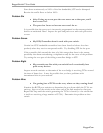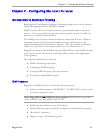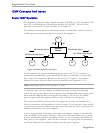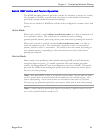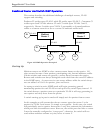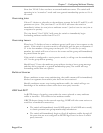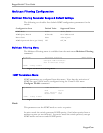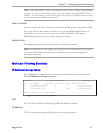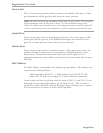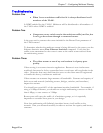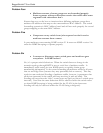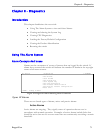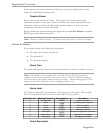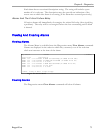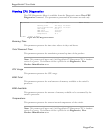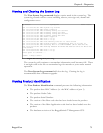
RuggedSwitch™ User Guide
Source Port
This is the port receiving the multicast stream as described by this entry. Source
port information will be aged out after about two query intervals.
Note:
The switch can detect only one multicast traffic source at any one time. The switch will
display information about the first source it detects. If a detected multicast traffic source
“moves” to a different port (or another source of the same group becomes active) the switch will
re-detect it after multicast source port information is aged out (about two query intervals later).
Joined Ports
These are the ports that have subscribed (with joins) to the source port’s traffic.
Joined ports will be aged out, if no IGMP join messages are received by those
ports for a certain amount of time (about 2 query intervals).
Router Ports
These are ports that connect to multicast routers. These ports must receive the
multicast streams in order to have the potential of distributing them to more
distant hosts. Dynamically discovered router ports will be aged out if no
appropriate multicast router traffic is received on those ports (after about 2 query
intervals).
MAC Address
The MAC address corresponds to the multicast group address. The addresses are
related in the following fashion:
Multicast address W.X.Y.Z <-> MAC address 01-00-5E-XX-YY-ZZ
where XX, YY and ZZ are simply X, Y and Z coded in hexadecimal
Astute readers will have noted that addresses such as 224.1.1.1 and 225.1.1.1 will
both map onto the same MAC address (01-00-5E-01-01-01). This is indeed a
problem for which the IEEE Network Working Group currently has no solution.
Users are advised to be aware of and avoid this problem.
RuggedCom



